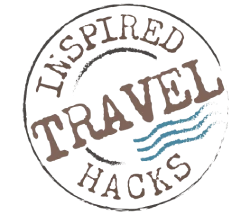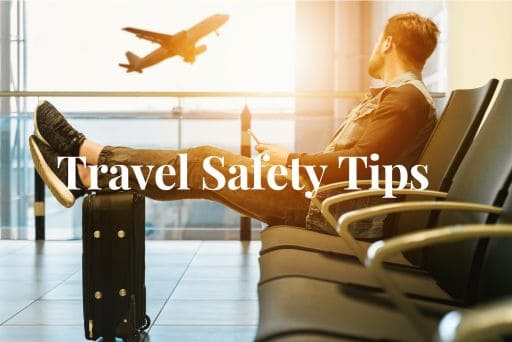
35 Most Important Travel Safety Tips

We have put together our most comprehensive list of travel safety tips to make your travels as safe and as enjoyable as possible.
These travel safety tips will help you minimise the risk of things going wrong and give you more control, so that you can travel safer and make your trips special, trouble free and filled with memories for the right reasons.
Our travel safety tips are easy to remember and can be used by anyone no matter where you go. So let’s get started!
1. Travel Insurance
Getting proper travel insurance is a must as it covers the risks associated with travel delays, theft and health. Make sure you get the right cover for your trip before you leave. Use travel forums and reviews to support your travel insurance decision purchase.
Once purchased, always read through the policy documentation and make note of the important contact numbers and the policy number so you have it ready to hand.
2. Let Your Bank Know
It is really good practice to always let your bank and credit card providers know when you are travelling overseas. Call them in advance and provide details on your travel dates and the countries you are visiting.
This is because your normal spending patterns will be different and you don’t want your bank cards or credit cards getting locked when you are using them overseas.
As part of this process, the bank/credit card provider will more likely give you some tips such as making sure you have their emergency contact numbers specifically for calling from overseas and checking which cards you will be taking with you.
3. Make Copies of Important Documents
Keep electronic copies as well as paper copies of important documentation, such as your passport, driving licence (if you are using it), any medical prescriptions and travel insurance policy details when traveling. Having copies of important documentation ready to hand for emergencies will make things easier as you are not scrambling around trying to find the information required.
Having a passport copy means that you can leave your original safely back at the your accommodation.
In the situation of having to have a passport replaced, having a copy will make the process for getting a replacement easier. Also, while waiting for the replacement you should still be able to use your passport copy while going about your business – like checking into a hotel.
Finally, leave a copy of your passport with a close family member or friend as a backup.
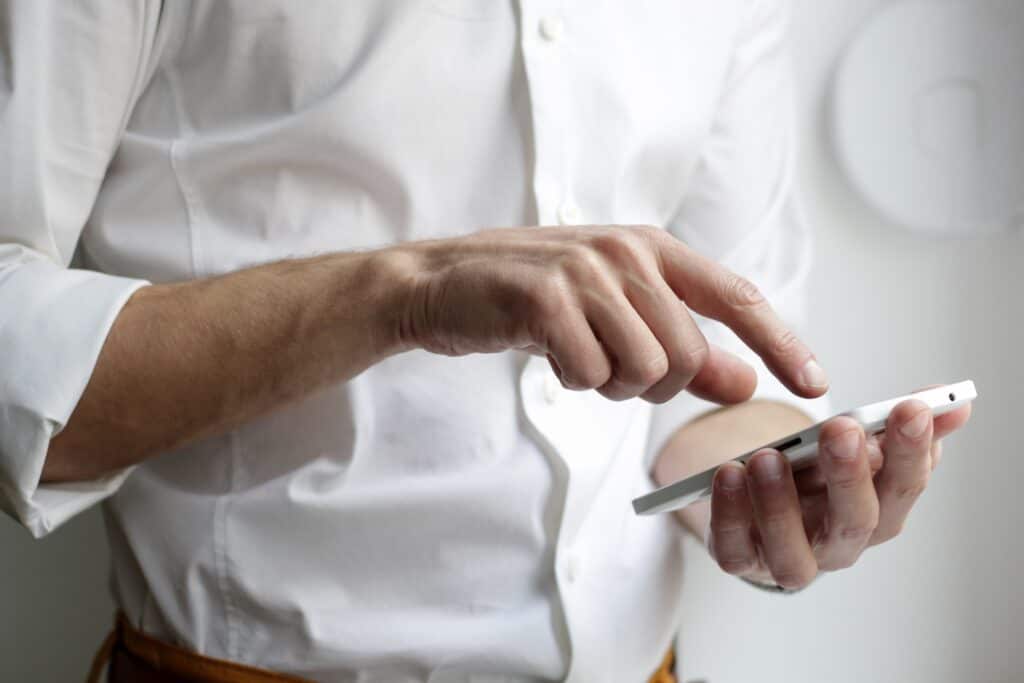
4. Emergency Contact Information
Before you leave for your trip, prepare a list of emergency contact numbers, such as bank, credit card provider, travel insurance, hotels, airlines, doctor etc. Having this information ready to hand will help save valuable time in an emergency; especially if the phone numbers are already entered into your mobile/cell phone (with the country code also added).
Once you have done this exercise, make sure the numbers and information are kept up to date every time you travel.
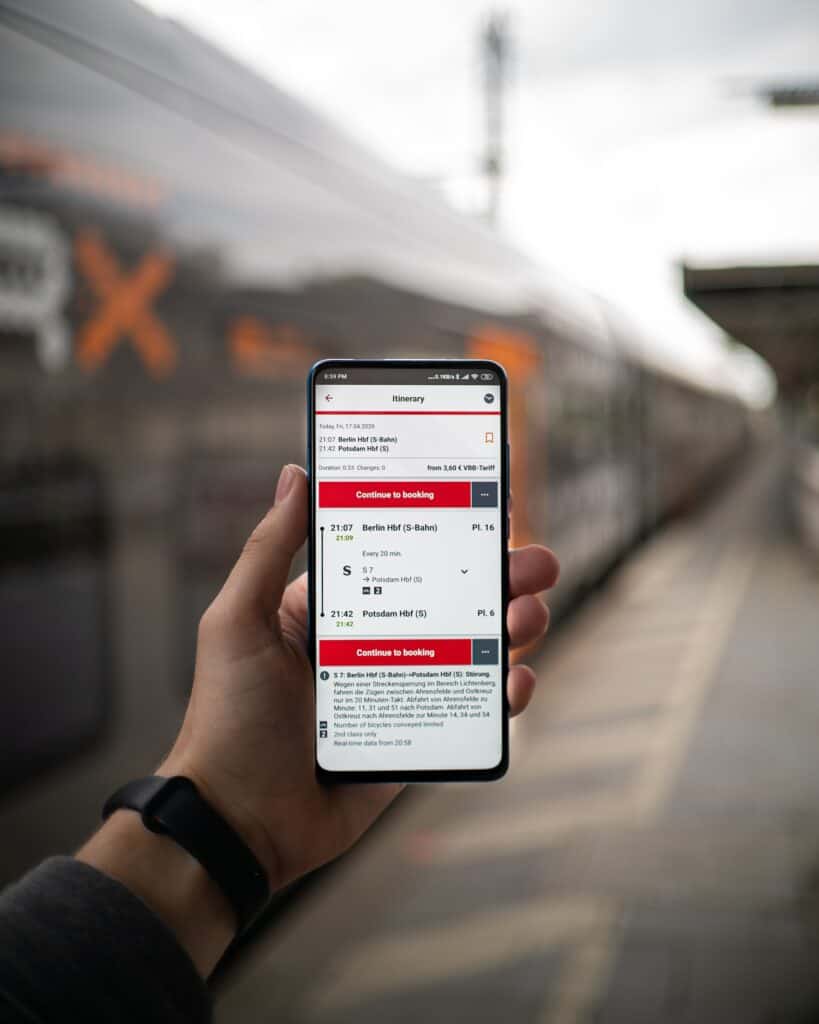
5. Share Your Itinerary
Make a copy of your travel itinerary and leave it with a close family member/friend. Include the addresses and phone numbers of your accommodation and your flight numbers. This is so people know where are you travelling, your overall travel plans and when you will be back.
6. Check in with Family/Friends
Make sure you check in with people back home from time to time while you are away.
7. Learn About Common Travel Scams
Spend time doing research about the common scams and tourist traps that are happening in the places that you are visiting. There is so much good information online based on people’s experiences and what to look out for. Just by knowing these local scams and traps will make you more prepared and less of a target.
8. Understand Local Customs & Laws
Get an understanding of the local customs and laws of the country that you are visiting before you leave so you are informed about your destination.
Also, read information on your government website for advise when visiting that country as it will cover vital information on local laws, safety, security, health, money etc. Learning this, will avoid any accidental confrontation, possible fines and make you more vigilant if you need to be.
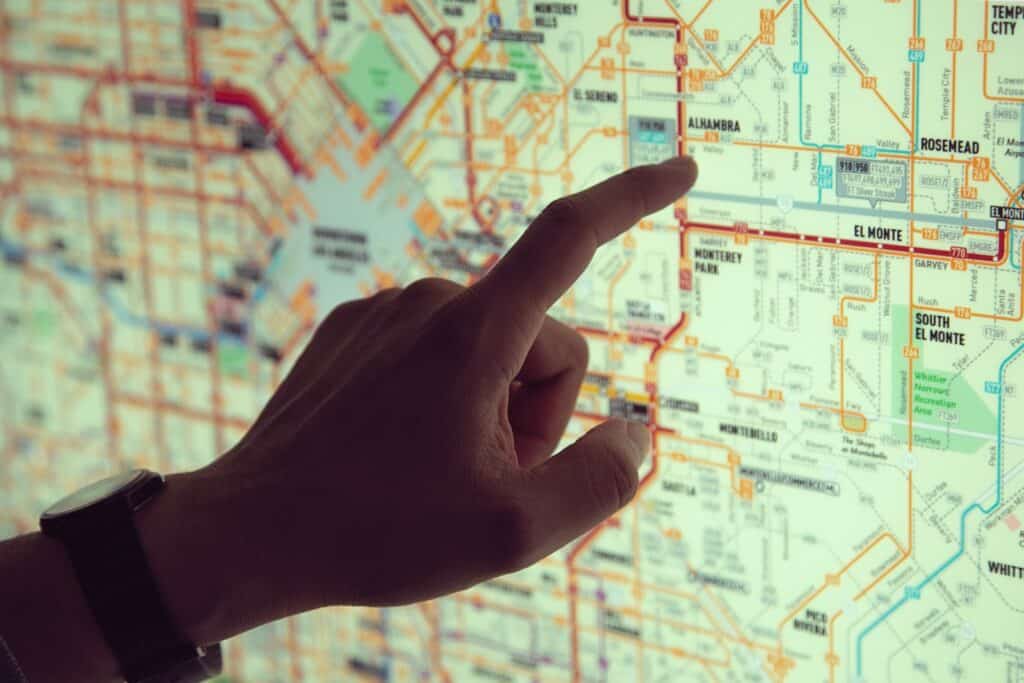
9. Know the Geography
Knowing location information about your destination especially which areas to avoid and which are considered more safer is a really important pre-arrival safety tip. This also helps when choosing your accommodation.
Try and scout out local key places near to your accommodation such as local bus stops, metro stations or a shopping centre to help you get oriented quickly.
10. Driving Cars / Using Bikes
Think about whether you need to drive or use your own transport in the location you are visiting. If you do, review your government websites for driving requirements, safety measures and the documents you will need. Make sure you have the required insurance cover. Always remember to use the seatbelt and in the case of bikes a helmet.
Also, if you are travelling with children, check the child seat process/availability for hire cars.
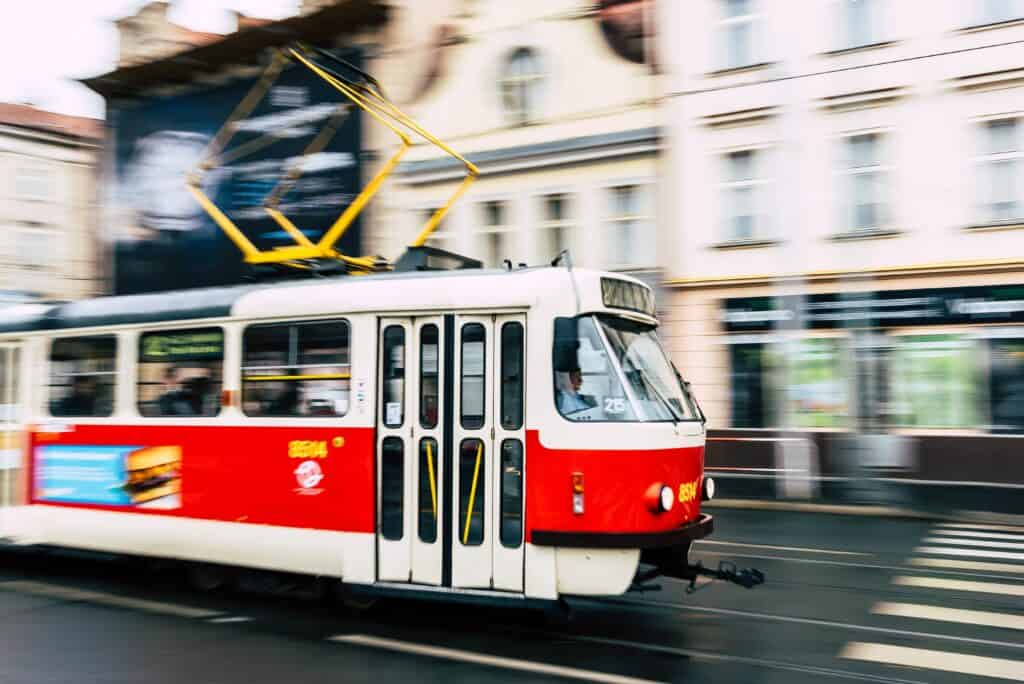
11. Use Reputable Transport Options
The best safety tip when travelling locally is to only use reputable transport options. Research ahead of time all the local transport options that are available, the prices and check out reviews from other travellers about their experiences.
This is most important when travelling from the airport as there are many taxi touts ready to pounce on tired travellers which could end up being a very expensive ride into town.
Most airports will have good arrivals information on their website including the local transport options; so choose the appropriate one for you. If you are arriving late make sure you have booked/organised your transport before you arrive.
During your time away, if you are planning to use the local buses/metro, find out the details of the daily schedule, how to buy tickets and times to avoid; such as late at night or at peak times.
Do the same for taxis, get an ideas of local fares as it may be better value as well as safer to use taxis instead of buses.
Also, if you are staying at a hotel, ask your hotel front desk for local transport advise and help with arranging arrange transport requirements.
Finally download any apps and timetables onto your smartphone in advance.
12. Health
Prepare your own first aid kit to take with you. This should at a minimum include plasters, paracetamol and antiseptic cream.
Make sure you get any necessary vaccinations and medical advice for your destination before you leave. Again, your government website is a great source of information.
Make an appointment with your doctor to check that you up to date with general vaccinations such as tetanus, polio etc. as well as getting any destination specific vaccinations and advice.
13. Water
The quality of tap water will vary from country to country so do some research on whether the local water is safe to drink. Again, use your local government website for advice. In general, when travelling stick to drinking bottled water and make sure to buy bottles that have been factory sealed and not bottles that look like the cap has been glued on.
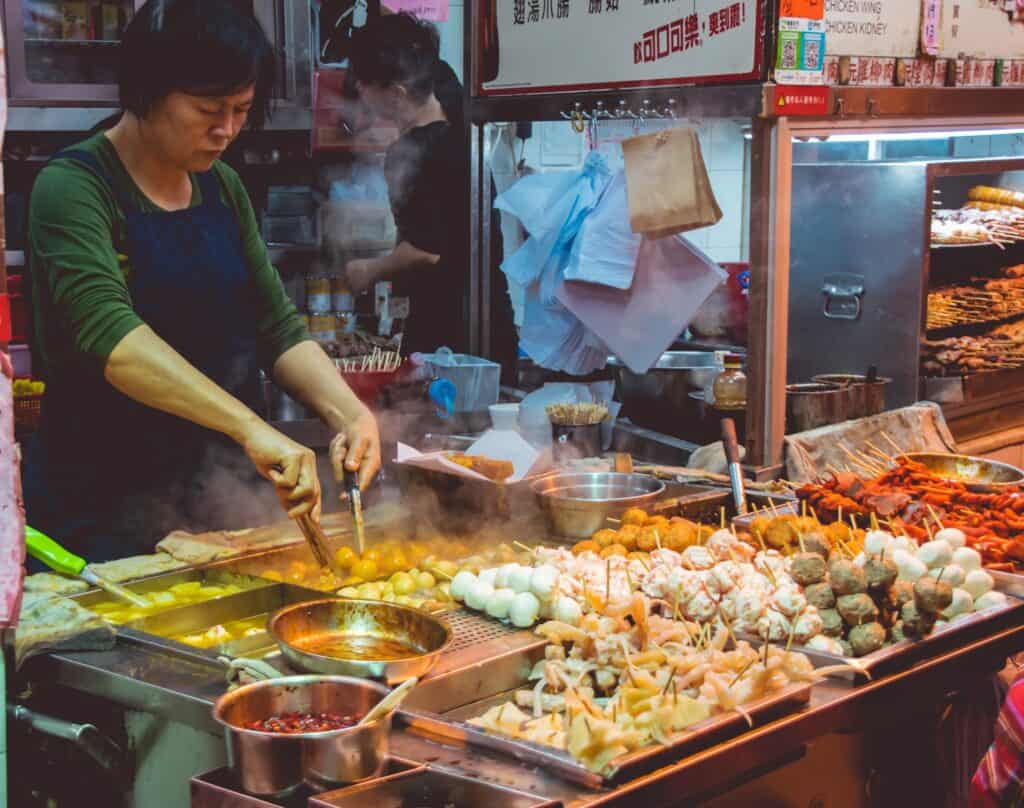
14. Eat Carefully
Eating food in new surroundings is often a highlight to travelling but do it with caution. Always eat in places that are popular and make sure food is properly cooked. If eating raw food, make sure that it peeled and if you need to be careful with the water, avoid foods like salads as they will more likely be washed using the local tap water.
Likewise, be careful with the ice in your drinks.
Steer clear of foods that have been stored at room temperature. As a rule stick to hot or cold food. Always paying attention to food hygiene will minimise the risk of food poisoning. If you have dietary restrictions/allergies to certain foods, get these restrictions translated so you can communicate easier when eating out.
15. Wash Your Hands
Wash your hands as often as possible with soap or hand sanitiser. Also keep hand sanitiser with you so you can use it often.
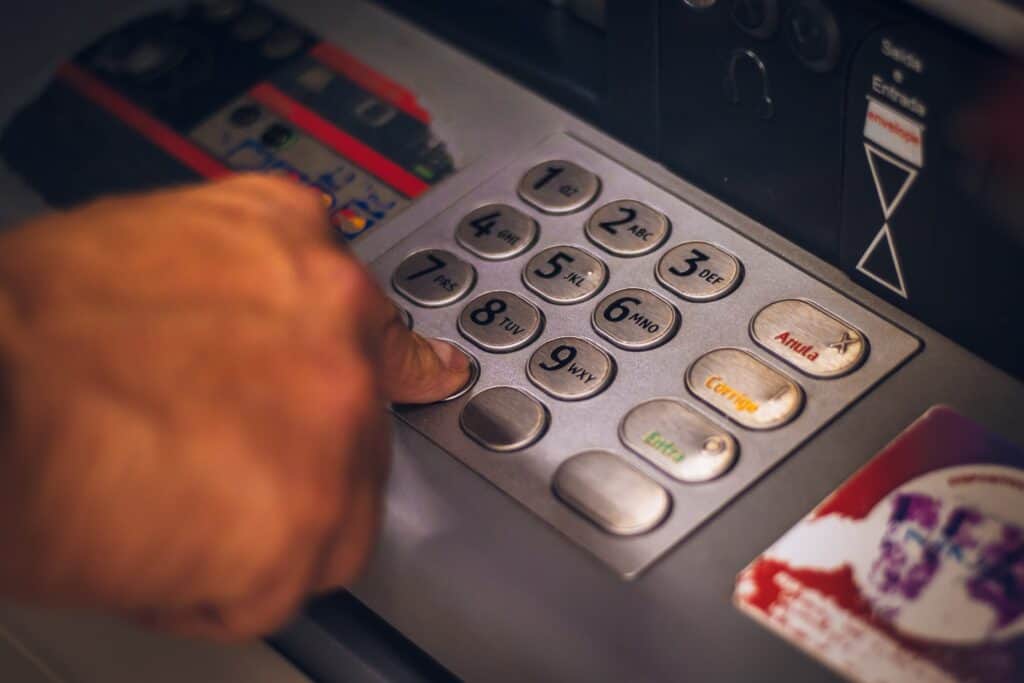
16. Money
Keep the cash you require for the day stored safely on you (never in a wallet in your back pocket) and some spare cash in a money neck pouch/money belt where you are not accessing it regularly.
Do the same with any bank cards. Keep one, if you are intending on using it safely in a wallet/purse zipped inside pocket/bag and then a spare card in a money neck pouch or money belt.
Whenever you need to use an ATM machine, use it inside the bank as they are more likely to be monitored and less likely to be tampered with.
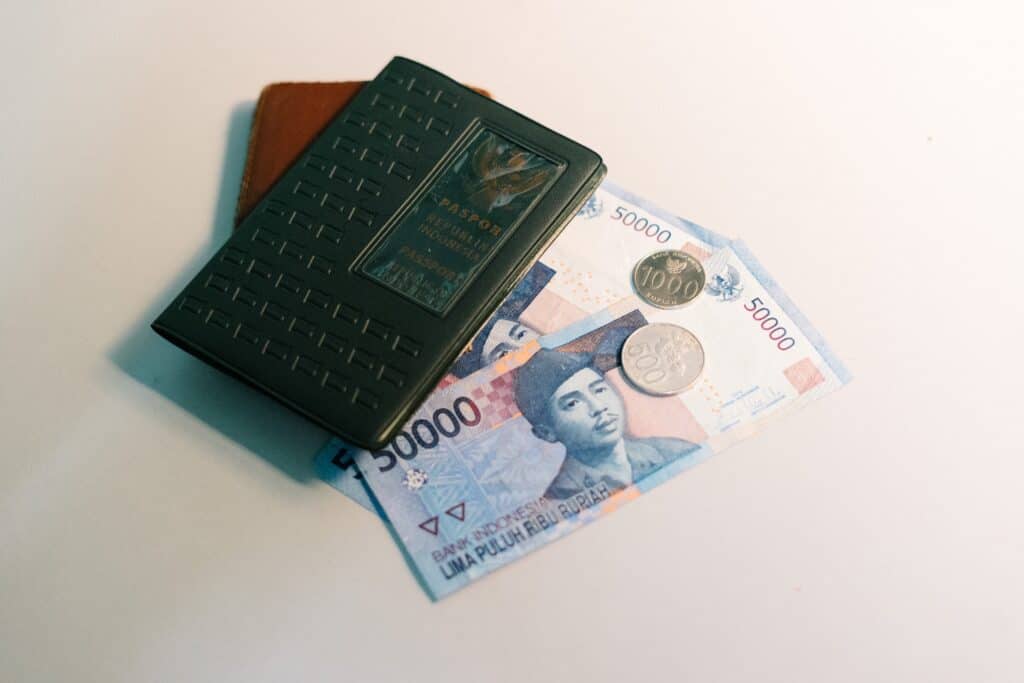
17. Emergency Cash
Always have some emergency cash with you. Again hidden in a hard to get to place or stored back at you accommodation.
18. Spend Wisely
Remember the cheapest option is not always the safest. For example, travelling on cheaper fares could mean arrival times are late at night or end up being further away from your end destination. Cheaper tours may not have safety in mind or have you stops at less reputable stores that pressure you into purchases and take up your precious time. So when researching compare all price options and think about safety as part of the booking decision.
19. Don’t Take Your Valuables
The best safety tip when it comes to travelling with valuables is to leave them at home. You’ll be doing things that you normally don’t do which may include removing your jewellery/watch and having to keep it somewhere safe. So the less you have, the less you have to keep track of which means the less likely you are going to loose it, leave it behind or worse have it stolen.
The same also applies to anything that has sentimental value or something that would be difficult to replace; simply leave it at home.
20. Don’t Flash your Belongings
Of course, the smartphone and camera are necessary to take with you; to capture those memories, keep in touch etc. However, only take them out when you need to use them and keep them stored safely in a cross body bag or zipped front pocket. Never leave items on your table when you are in a restaurant, bar etc. Always keep them safely stored and out of sight.
21. Travel Light
Using the same approach as leaving your valuables at home, try and travel light with less things as then there is less to keep track of or leave behind. When going out for the day, only take what you need with you.
22. Get The Right Bag
There are so many bags that have been made specifically for travelling with great safety features such as RFID blockers, secure and lockable zippers and slash-proof straps. Invest in one that meets your needs; such as a cross-body bag or backpack that you use when you are out and about. It is a great investment for your travel safety.
23. Travel Locks
Add a travel combination lock to your bag as an extra deterrent. Use it throughout your trip from when you are storing your bag in an overhead compartment on a plane to when you are out and about.
24. Pockets & Tethering
If you are using a backpack avoid using the small pockets in the front of the bag to minimise anyone getting easy access to your things. Likewise never put things in your trouser back pocket.
When putting your bag down, if possible keep it tied to something immovable like a chair, table or simply put the strap through your leg and don’t let it out of your sight. Another good tip is to use a carabiner clip which can also be clipped to a chair or table. All this will make snatch and run difficult.
25. Try To Blend In
Now we know that you will not completely get away with looking like a local but blending in more will make you less of a target. When out and about try and wear clothes that are more conservative or so you don’t stand out and attract attention.
Some countries may have specific dress code guidelines while other countries may not be as explicit when it comes to dress but how you address could still attach attention which of course you want to avoid.
26. Accommodation
Always book your accommodation in a safe area, close to local transport links and in more popular/known areas. Always keep your accommodation door locked and when arranging to meet people meet in the hotel lobby or somewhere close by.
27. Ask The Locals
Locals and hotel staff are great sources for information and advice. They should know about areas/neighbourhoods to avoid and which are safer and where to eat. Use their local knowledge.
28. Don’t Overshare with Strangers
One of the best things about travelling is the interesting people you get to meet. However, always be careful when sharing personal details. In fact don’t share too much information about your accommodation or your travel plans. If a shop keeper or street vendor asks where you are staying, give them a different hotel name; a small white lie for your travel safety is okay.
29. Social Media
Don’t share too much information on social media about your location details and try and wait as long as possible before posting anything.
30. Be Care When Taking Photos
Remember to be careful when trying to get that awesome snap. More and more people are falling and hurting themselves just for likes on social media; so be smart and careful when taking photos.
31. Digital Safety
Be careful when using any public wifi services. If you need to use wireless services regularly sign up to a VPN (virtual private network) service.
32. Party & Drink Carefully
Be smart about staying out late and partying and know your alcohol limit. Drinking in excess will affect your judgement and you are more likely to take risks and make poor decisions. So watch your alcohol intake.
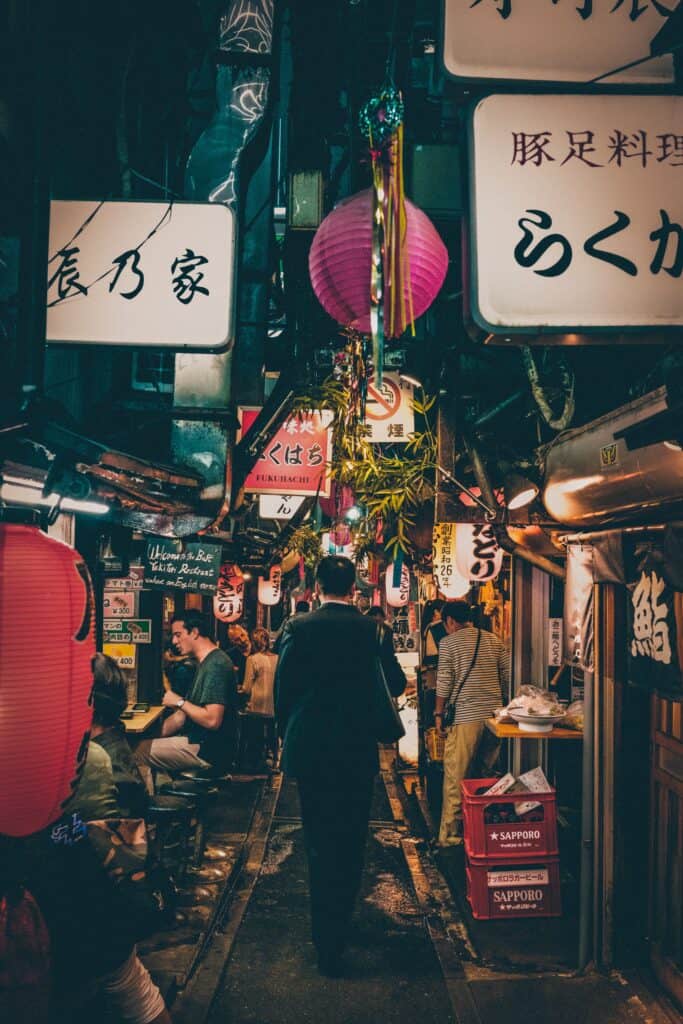
33. Be Extra Cautious At Night
When going out at night be extra cautious, stick to safe and busy areas and try not to go out on your own.
34. Observe & Use Your Gut
Always stay alert and be aware of your surroundings. If something does not feel right then just leave immediately, always follow your gut instinct.
35. Be Confident
Finally, a great travel safety tip is simply travel around with confidence and look like you know where you are going. When using a street map do it more discreetly and approach strangers carefully when asking for directions. Looking like you know what you are doing will make you less of a target for any opportunists.
So to Wrap Up On The Most Important Travel Safety Tips…
Travel safety is all about being smart and being prepared for the unexpected. This comprehensive list of travel safety tips will equip you with all aspects of travel safely so you always make safety a priority.
Although these safety tips may seem like common sense, you would be surprised at how many people don’t take the necessary precautions to ensure their safety while traveling. By following these travel safety tips you can help ensure that your next trip is enjoyable and stress-free. Happy and Safe Travels!
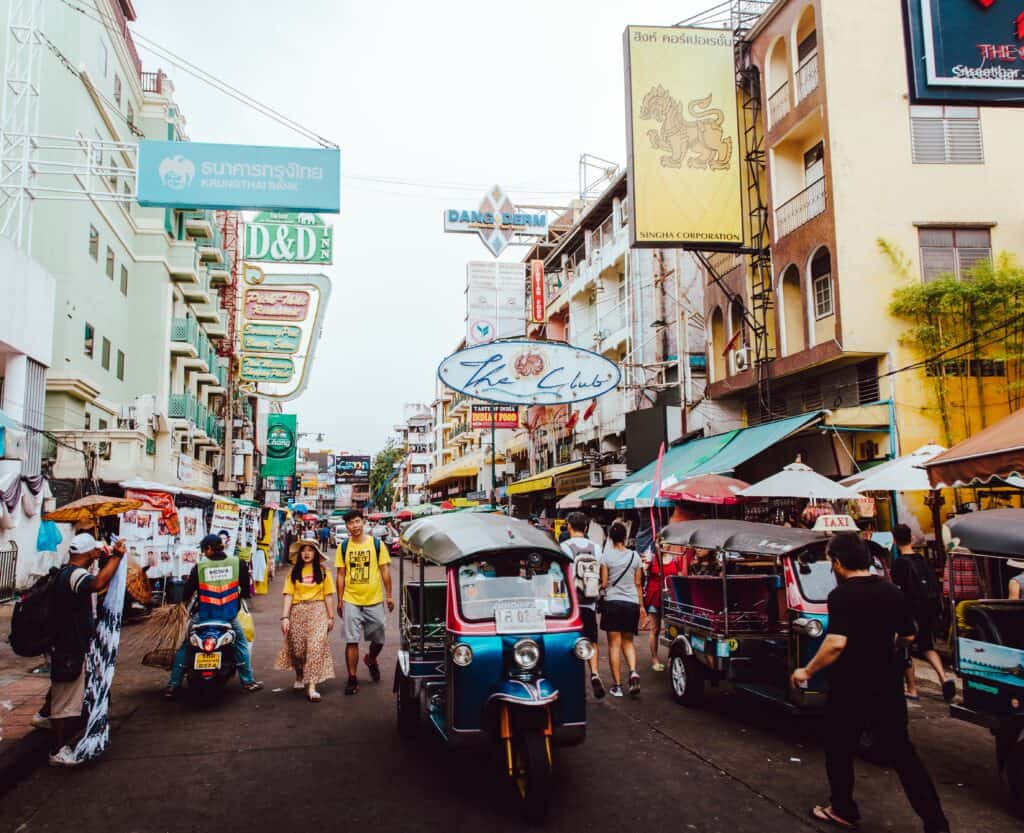
Further FAQs:
What Should I do if I am the Victim of a Crime when Travelling?
If you are the victim of a crime while travelling, it is important to contact the police or security personnel right away. Take note of any witnesses and get their information and record any details that could be useful. It need be take photos or videos of the scene as evidence.
It is also important to take notes of what happened, if possible writing down any details that you will need later to support any insurance claims when you get home.
Contact your insurance provider as soon as possible.
Are There Any Specific Safety Tips for Women Travelling Alone?
Traveling alone as a woman can be an exciting and rewarding experience. While it can bring a sense of freedom, there are also risks involved in travel that must be taken into account. In addition to the above, when travelling always try and travel in a group or two or more people. If this is not possible, travel during daylight hours and in well-populated areas.
Specific Safety Tips When Travelling with Children
When travelling with children talk to your children about travel safety. Share with them the importance of staying close to adults and not talking to strangers.
It’s also important that they know what to do if they get lost or separated from you or the travel group.
Visit our travel hacks page for more great hacks.
